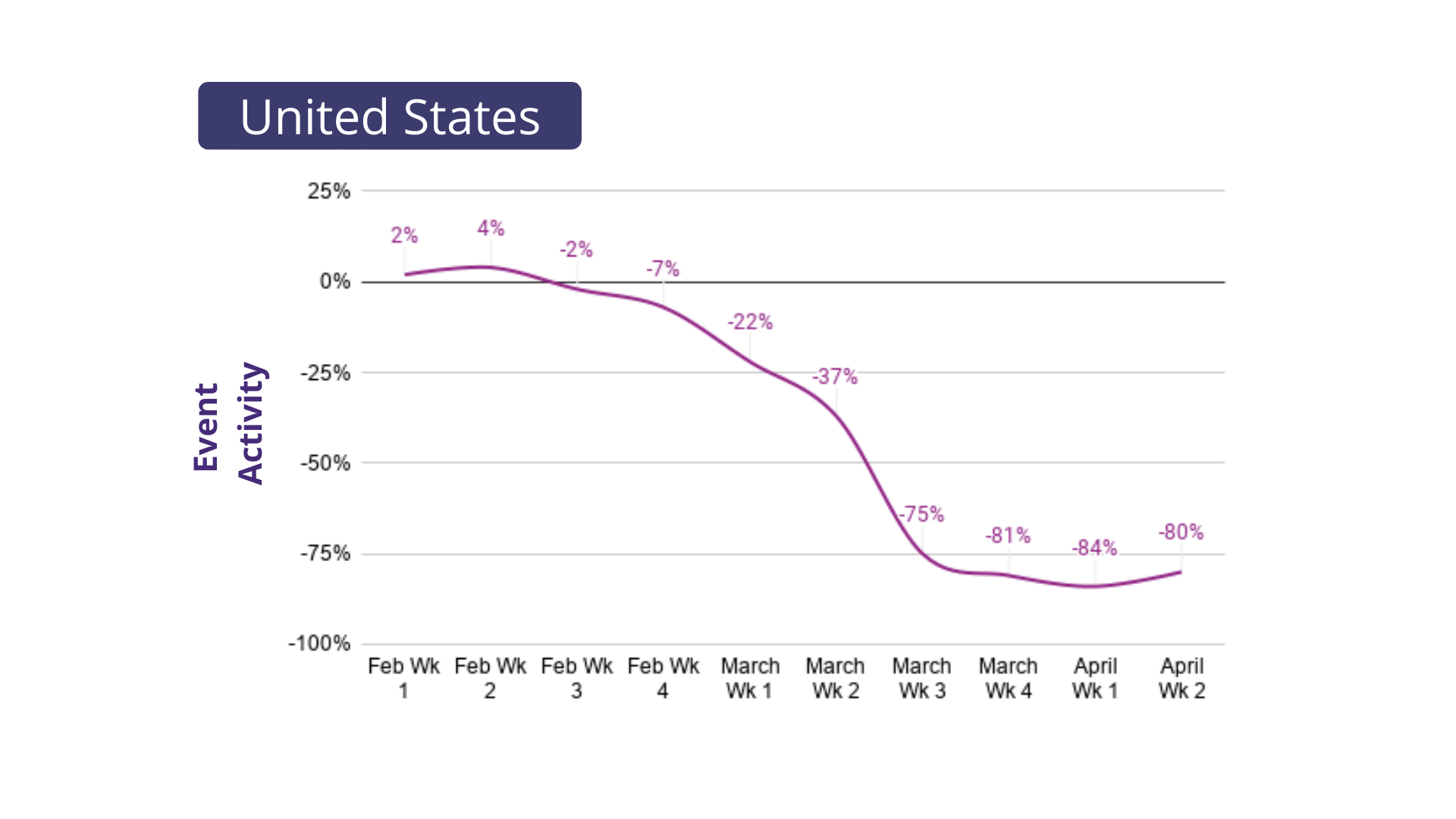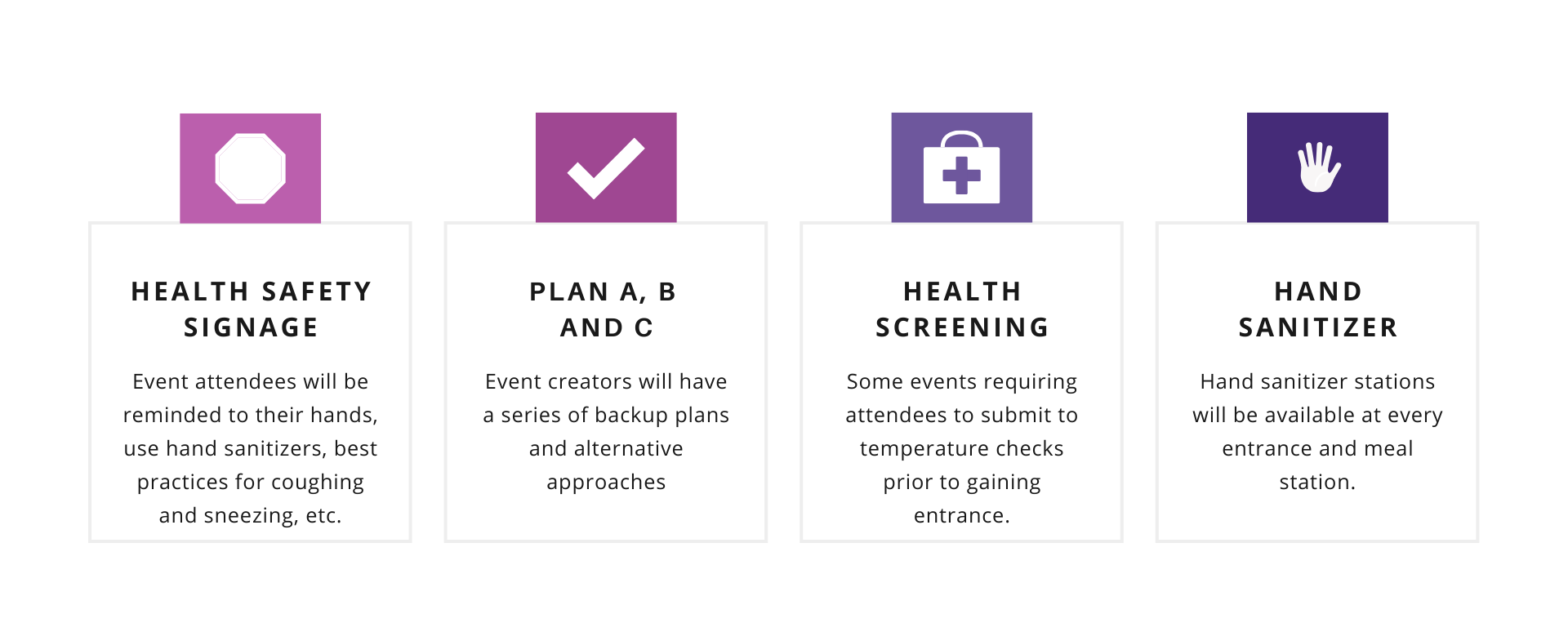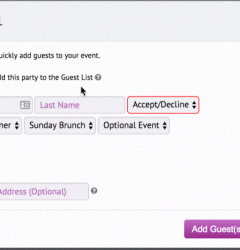23 Apr

What might the post-pandemic future of events look like?
By late January, few event professionals were attune to increasingly dire mainstream media reports of the novel Coronavirus (Covid-19). By mid-February, RSVPify had begun fielding a trickle of support requests surrounding virus-related event cancelations from Asia-Pacific and European event hotspots.
In the coming days and weeks, that trickle of event cancelations became a steady pour, with no corner of the globe immune. It was clear. This microscopic enemy was going to wage war on humanity, and impact millions of events and potentially billions of lives.
Since, leading companies and organizations have announced sweeping event cancelations and staff guidance on the near-future of events. Some companies have even gone so far as to cancel all events over a certain number of attendees as far out as the summer of 2021. Microsoft announced that the tech giant would hold virtual-only meetings and conferences until July 2021. Facebook followed suit, suspending all large in-person events through June 2021.
Still, at RSVPify, we never imagined that come late April, our home city of Chicago would still be on lockdown. Or that we’d be wondering about what the future of live experiences might look like in a present that continues to be almost completely devoid of in-person events anywhere on planet earth.
What is RSVPify seeing in the data?
The events industry was one of the first and hardest hit by Covid-19 fallout. It will also be one of the last industries to recover from the pandemic, RSVPify forecasts.
As of this publish date, RSVPify is seeing virtually no near-future, in-person professional or public events in the pipeline across the platform. Based on current event industry trends, we anticipate that private or social events (weddings, birthdays, Bar/Bat Mitzvahs, etc.) will begin to resume in early July of 2020, with many private events currently rescheduled for mid-fall and early winter.
Major public and professional events will not likely begin to resume until October 2020 at the earliest, with many event professionals choosing to postpone headliner events entirely until 2021.
Of course, a possible second wave of Covid-19 cases may propel the events industry into further chaos if the virus stages a resurgence in the winter of this year (along with flu season).
RSVPify is currently forecasting an events industry recovery timeline as follows:
- June 2020: Few events of any shape or size.
- July 2020: Some smaller, private events will begin to take place as-scheduled. Some postponed private events are currently being rescheduled for this time period.
- October 2020: Many private events are rescheduled for fall. Some smaller professional events may take place in early Q4.
- November and December 2020: If Covid-19 is able to be kept at bay, many holiday parties and winter celebrations may still take place.
- March 2021: Major professional and public events and conferences will begin to resume with increasing pace.
- June 2021: The events industry will near a return to normalcy, with most events taking place unimpeded around the globe.
What might the post-pandemic future of events look like?
It’s too early to measure the full scope of the human and economic toll of the COVID-19 pandemic. There is little doubt that the direct fallout and cascading effects of the virus will be unparalleled in modern times. And, with levels of globalization far beyond what they were even 20 years ago, such effects will reverberate as never before seen on such a global scale.
Though virtual meetings and events are an effective stopgap in a fractured world, online interactions cannot compete with the lasting impact delivered by live experiences and in-person interactions.
Events of the near-future will need to adapt and evolve to continue to deliver world class, unforgettable experiences in a forever changed world.
What changes will we see at events of the near-future?
With the planet’s COVID-19 scars still fresh, event professionals and marketers will need to make highly-visible changes to mitigate risk, help ensure event attendee safety and put minds (and imaginations) at ease — when these events do take place.
- Low-touch Interactions: Already-popular technologies including digital event check-in and payments will become standard. With digital payments already soaring amid Coronavirus concerns, payments at headliner events for anything from tickets to lunch and vending machine purchases will be made using proximity-based mobile devices and wristbands. The omnipresent touch screen experiences of yesteryear will wane in popularity at conference booths and checkpoints.
- High-touch Communications: More so than ever, attendees will need to be kept in-the-know about safety precautions, backup plans and event policies and procedures. It will take some trial and error for event creators to strike a balance between keeping attendees informed and information overload.
- Health Safety Signage: Health safety signage will be ubiquitous at every turn. Event attendees will be reminded to frequently wash their hands, use available hand sanitizers, and know best practices for coughing and sneezing. Guests will also be reminded to immediately vacate the event if they aren’t feeling well.
- Hand Sanitizer Stations & Giveaways: With hand sanitizer out of stock everywhere at this time, branded bottles of this coveted substance will make popular giveaway swag at events of the near-future. Hand sanitizer stations will be available at every entrance and meal station, and event attendees will be strongly encouraged to take advantage.
- A Plan A, B and C: Event creators will have a series of backup plans and alternative approaches. For headliner events, planners may consider a backup venue in a different city or even different country. Virtual participation and experiences including the extension of virtual reality attendance options will become more commonplace.
- Discounted Admission: To help attract a wary public back to mass gatherings, some incentives may be needed. Expect event marketers to offer attractive multi-attendee discounts and free event add-ons and giveaways to help coax on-the-fence invitees into showing up in-person.
- Event Registration: When registering for events of the near-future, expect event registration forms to include less-common fields like detailed travel history, emergency contact information, arrival time and means of transport, and increased attention to any attendee special needs. Some events may also apply an additional health safety fee to registrations.
- Virtual Meetings: For at least a while, some meetings that may have historically taken place in-person will be hosted virtually. With travel and safety concerns and extreme travel budget limitations in place, some smaller events simply will not take place in 2020.
- Health Screening Technologies: Don’t be surprised to see some events requiring attendees to submit to temperature checks prior to gaining entrance. Larger events may also employ thermal imaging equipment akin to those used at airports and travel hubs in outbreak zones to assess whether any attendees are running a fever.
- Encouraged Distancing: In the first few months after nations start giving the “all clear” to host events again, expect venues to encourage distancing as much as and wherever possible. This may include considerations for at-location ticketing, room layouts, seating charts, lines and check-in.
- Attendee Obligations: Attendees will be asked to alert event staff if they aren’t feeling well or are experiencing any symptoms characteristic of a Covid-19
infection. Attendees may be asked to recount detailed contact and interaction history
- Contracts & Legalese: Updated legalese surrounding contagion-related requirements and cancelations will be commonplace. Event creators, venues, event services firms, and event insurance providers will evolve contract language to better address changes and cancelations stemming from virus concerns and compulsory lockdowns.
- Health Authority Oversight: Expect to see additional governmental and health authority oversight at major gatherings, with revised guidelines and regulations that event creators must follow. Some territories may introduce further permitting and health inspection requirements for events over a certain number of expected attendees. Regulations will extend to venues, event caterers, booth sponsors and event staff.
Will events ever be the same?
It rarely seems like it in the height of a crisis. But this, too, shall pass. After potentially months apart, humanity’s innate desire to be together will spark an event industry renaissance.
When we do emerge from this global pandemic, the world will look very different. After what may extend to months of social distancing in some Covid-19 hot zones, the idea of mass gatherings of people — “events” — will engender unease in some communities. For a time, such events may remain limited in scope and attendance, if they’re able to take place all.
Events bring people and communities together. Live experiences are an integral part of the fabric of our societies. It’s not a question of if, but when the event industry will emerge from these times of tumult, forever changed but stronger than ever before.













